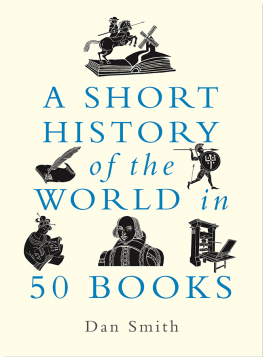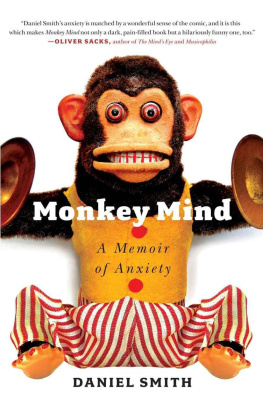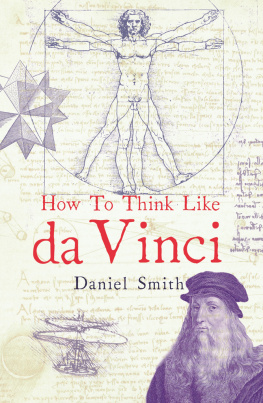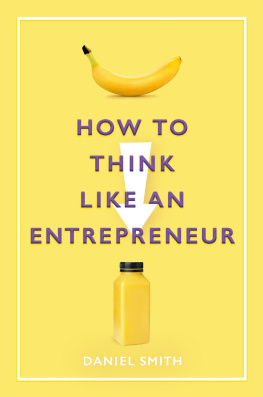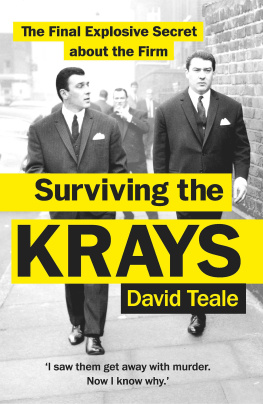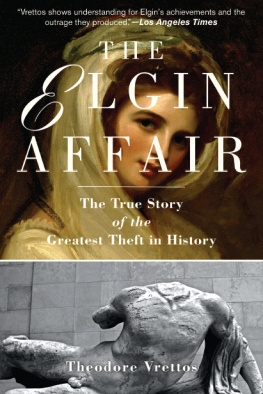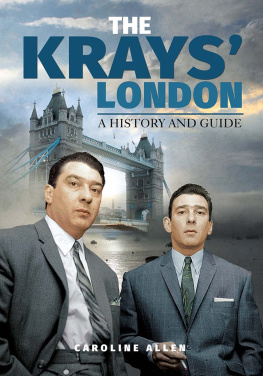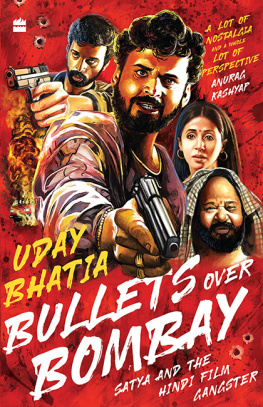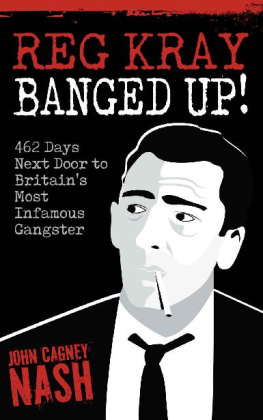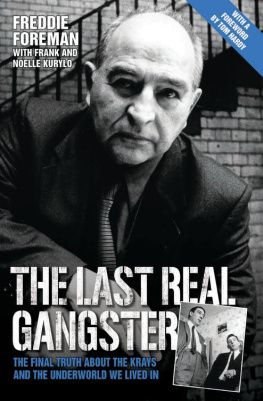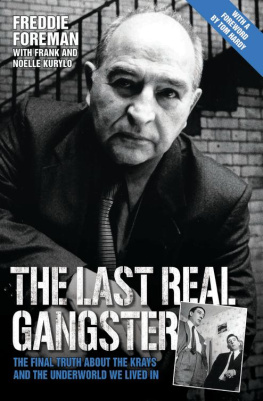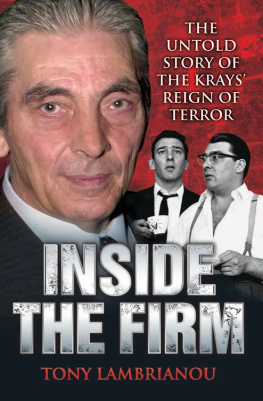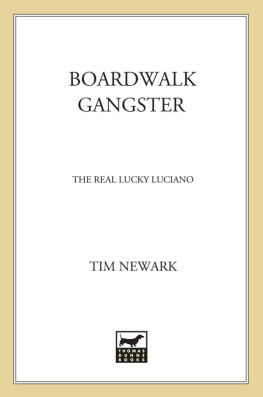Contents
Guide


For Rosie, Charlotte and Ben
First published 2020
The History Press
97 St Georges Place, Cheltenham,
Gloucestershire, GL50 3QB
www.thehistorypress.co.uk
Daniel Smith, 2020
The right of Daniel Smith to be identified as the Author of this work has been asserted in accordance with the Copyright, Designs and Patents Act 1988.
All rights reserved. No part of this book may be reprinted or reproduced or utilised in any form or by any electronic, mechanical or other means, now known or hereafter invented, including photocopying and recording, or in any information storage or retrieval system, without the permission in writing from the Publishers.
British Library Cataloguing in Publication Data.
A catalogue record for this book is available from the British Library.
ISBN 978 0 7509 9576 4
Typesetting and origination by The History Press
Printed and bound in Great Britain by TJ International Ltd.
eBook converted by Geethik Technologies

Contents
Acknowledgements
A book like this relies on the efforts of a large cast of individuals and organisations who generously offer up their time and expertise. I certainly could never have written it without access to a host of wonderful archives and libraries. I extend my thanks to the staff of the National Archives, the British Library, the Special Collections at the National Library of Scotland, the Parliamentary Archives at Westminster, the BBC Written Archives Centre, Christ Church Archive in Oxford, the Labour History Archive and Study Centre, and the Bodleian Library. Gratitude too to the Soho Society, the Metropolitan Police History Group, the National Association of Retired Police Officers, the Association of ex-CID Officers of the London Metropolitan Police, the Association of Mirror Pensioners, the BBC Pensioners Association, the Labour History Group, East End Life, the East London Advertiser, the Jersey Evening Post, the Aberdeen Press and Journal, Gays the Word bookshop and Boxing News Online.
Then there are the many individuals who either shared their memories with me or else pointed me in the direction of others who might. At the top of this list must go John Pearson, who was the first to alert the world that the saga of the Peer and the Gangster was not all that it had at first seemed. I will be forever grateful to him for giving me his blessing to write this book. Special thanks to Val Wilson for her help with research in Scotland, and to Ray Rose, who generously shared a few of the fruits of his exhaustive research with me late on in the writing process. Thanks also to: Matt Barber, Michael Brotherton, Ian Brown, Paul Callan, Duncan Campbell, Caro Cluskey, Jess Conrad, Monty Court, Roger Crowhurst, Judith Curthoys, Anthony Daly, Simon Danczuk, Tony Delano, Beverley Edwards, Bob Fenton, Georgia Glover, Roy Greenslade, Jeffrey Hackney, Bill Hagerty, Joe Haines, Dr Henry Hardy, John Jackson, Lord Lexden, David Little, Linda Mallard, Leah McGrath Goodman, Paddy OGara, Jeremy Reed, Greg Rosen, Mike Smith, Angela Swinn and Walter Harris, John and Nelly Symonds, Lord Taverne, Michael Thornton, Richard Tracey, Phyllis Trachy, Barry Turner, Jon Vickers-Jones, Philip Webster and Bradley Wakenell. I also owe a debt of gratitude to all those who have gone on the public record with their personal experiences of the Krays over the years, many of whom are no longer with us.
Also, to my agent, Andrew Lownie, who got this book from the outset and who was ready with good advice throughout. And to Mark Beynon, Jezz Palmer, Caitlin Kirkman, Simon Wright, Alex Waite and the team at The History Press who have given it such a good home.
And, as ever, to my family. In particular, to Mum and Dad for their constant support and encouragement (which I call upon more often than I ought), to Matt for his interest in general and especially for his advice in navigating Freedom of Information requests, and to Celia who should surely have had a career in PR! Finally, of course, to Rosie, who has been with me every step of the way, and Charlotte and Ben (who I suspect were, during the writing of this book, the only under-6s in the country who could pick out Bob Boothby in a photograph). I couldnt have done it without you.
Daniel Smith
March 2020
Prologue
Homosexuality is equally prevalent among what used to be called the higher and lower orders; and sometimes these are attracted to each other. This is known in homosexual circles as plain sewing.
Bob Boothby, Recollections of a Rebel (1978)
Saturday, 11 July 1964
The Mirror Building, Holborn Circus, London
It was the sort of front-page splash that editors dream of. PEER AND A GANGSTER: YARD PROBE screamed the headline in the Sunday Mirror, suggesting much even as it revealed so little. By the following morning, breakfast tables up and down the country were aflutter with the news. There was a collective spluttering of tea, a choking upon cornflakes, the whiff of kippers surrendering to the stench of scandal.
The libel legislation of the day ruled out the paper naming the subjects of its headline. But that was almost beside the point for the time being. Here was a story hinting at revelations that may yet surpass those of even the Profumo affair, which had fatally undermined Harold Macmillans government the previous year.
As the front page revealed, a prominent peer a household name no less and a leading thug in the London underworld were under Scotland Yard investigation. Their alleged crime for it was still a criminal matter at the time was their involvement in a homosexual relationship. Moreover, there was the suggestion that the story had broader dimensions. There were allusions to private weekend activities of the peer and a number of prominent public men during visits to Brighton and relationships between the East End gangsters and a number of clergymen.
The story broke just a fortnight before the release of the latest Carry On film and promised to match every bit of the high campery and innuendo of those movies. If, as Philip Larkin held that it did, sexual intercourse had begun sometime between the Lady Chatterley obscenity trial of 1960 and the Beatles first LP in 1963, it was still all rather vanilla. The Beatles professed only to want to hold your hand and even the Profumo narrative that of the older man having his head turned by a beautiful, younger woman was distinctly orthodox. But now the Sunday Mirror was hinting at something less vanilla and more tutti-frutti.
The underworld thug in question was a man who was as yet little known to the public but who would in due course take his place alongside the likes of Jack the Ripper and Dr Crippen in the pantheon of British criminality. He was Ronnie Kray and, along with his twin Reggie, he had spent several years establishing one of Londons most feared criminal enterprises.
The politician, meanwhile, was one of the grand old men of the British political scene Lord Boothby, better known as Bob to his friends. Eton- and Oxford-educated, he was a scion of the upper class. A Conservative parliamentarian from the age of 24, he had stood shoulder to shoulder with Churchill in the 1930s as they railed against those who called for appeasement. He was there in Churchills wartime administration too, until a financial misstep forced him out and put paid to his ambitions of high office. Now in his sixties, he was a regular on television and radio an acerbic and amusing guest and commentator, always ready with some delicious anecdote or another and instantly recognisable from his long flop of grey hair and his deep, melodious voice. National treasure status had seemed to beckon.


